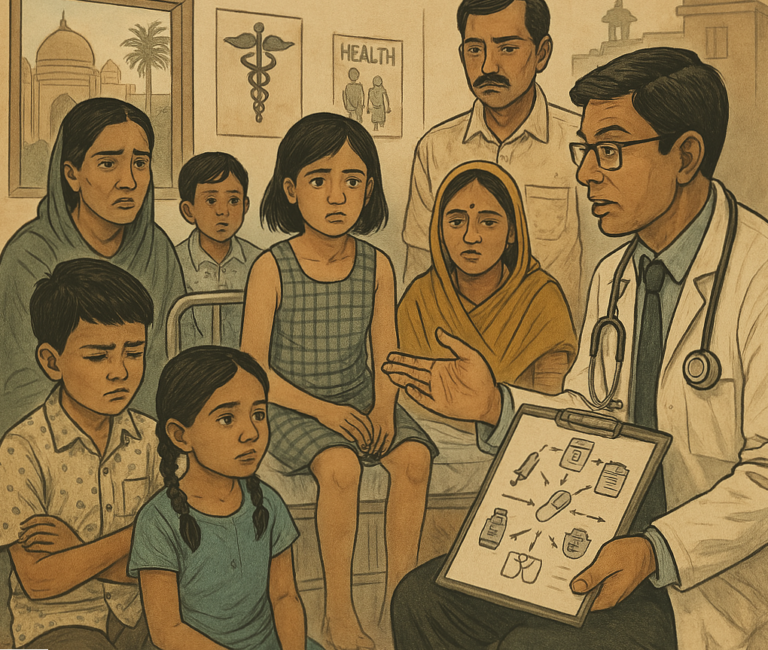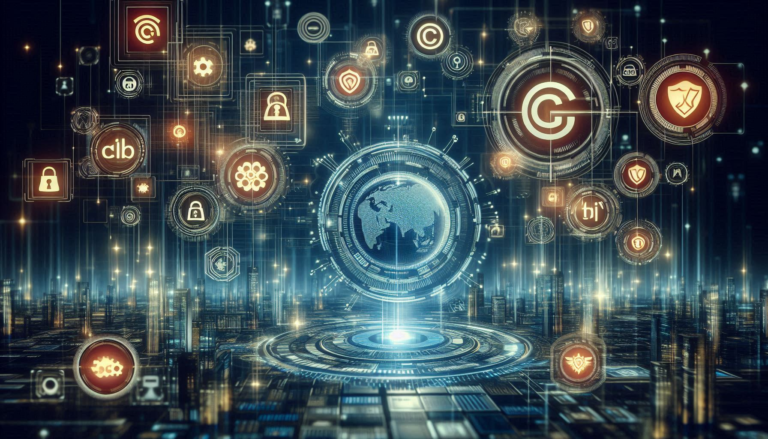
Abstract:
This paper examines the intersection of Human Rights Law and the Indian Penal Code (IPC), highlighting areas of convergence and divergence. It reviews the evolution of human rights in India, the IPC’s colonial legacy, and its impact on human rights. The paper analyzes specific provisions of the IPC, such as sedition, blasphemy, and adultery laws, and their compatibility with international human rights standards. It concludes by recommending reforms to align the IPC with human rights principles and best practices.
Keywords:
Human rights law, Indian penal code, convergence, divergence.
Introduction:
The Indian Penal Code, which was acted out in the year 1860, has long served as a fundamental framework for the criminal justice system in India. It established legal definitions and categories of various crimes and prescribed penalties for offenders. However, the code’s origins during the British colonial era have become a focal point for criticism, particularly regarding how much its provisions reflect contemporary societal values and norms. Many of its clauses are seen as outdated, failing to align with modern understandings of justice and individual rights. This disjunction has raised significant concerns about the compatibility of the Indian Penal Code with established human rights law, which emphasizes the inherent dignity and equality of all individuals. Human rights are described as the fundamental rights and freedoms with the intention of every person is entitled toward simply by being human. These rights apply universally, transcending distinctions such as nationality, race, gender, religion, or any other status. Over the years, the concept of human rights has matured and been predisposed by significant global events and movements. International instruments, such as the Universal Declaration of Human Rights and various international treaties, have been created to safeguard these rights, providing a framework for accountability and protection. Additionally, numerous international mechanisms, including monitoring bodies and human rights courts, have been established to ensure compliance and to address violations. This review paper is committed to submitting a methodical assessment of the concepts surrounding human rights, the challenges that arise in their implementation and enforcement, as well as potential future directions for advocacy and reform. By analyzing the historical context and current state of human rights in light of the Indian Penal Code, the paper seeks to highlight disparities and propose pathways for alignment with international human rights standards. Understanding these aspects is vital for addressing the complexities of justice and equity in a rapidly evolving societal landscape.
Concepts of Human Rights:
The notion of human rights encompasses a set of fundamental principles and norms that dictate the inherent rights and freedoms entitled to every individual, irrespective of their nationality, ethnicity, gender, or any other distinguishing characteristic. These rights serve as a universal norm, designed to protect individuals from various forms of injustice and discrimination, ensuring that every person can live with dignity and respect. Historically, the development of human rights has been predisposed by various philosophical, cultural, and political movements that have sought to promote the inherent value of human life. Rooted in the idea that all human beings possess intrinsic worth, the framework of human rights has evolved over centuries, particularly gaining momentum in the consequences of World War II with the establishment of significant international agreements, such as the Universal Declaration of Human Rights in 1948. Human rights are often classified into civil, political, economic, social, and cultural rights, each addressing different aspects of human existence. Civil and political rights ensure individuals’ freedoms concerning their liberties, such as the right to free speech, freedom of assembly, and the right to vote. Economic, social, and cultural rights, additionally, focus on the basic social and fiscal needs of individuals, including the right to education, healthcare, and an adequate standard of living. The enforcement and protection of human rights are pivotal in fostering societies where individuals can thrive without fear of oppression. National governments, as well as international organizations play crucial roles in upholding these rights through legislation, advocacy, and monitoring practices. Additionally, non-governmental organizations (NGOs) and civil society groups work tirelessly to raise awareness of human rights violations and advocate for those affected by such injustices. In contemporary society, the discussion around human rights continues to evolve, addressing new challenges that arise from globalization, technological advancement, and sociopolitical changes. Issues such as digital privacy rights, environmental justice, and the rights of marginalized groups are increasingly being acknowledged as essential components of the broader human rights agenda. Overall, the perception of human rights remains a vital framework for promoting justice, equality, and humanity in a complex and interdependent world.
Human rights can be pigeonholed into several types, including:
- Civil and Political Rights:
- Right to life, liberty, and security of person
- Freedom from torture and cruel, inhuman, or degrading treatment
- Freedom of expression and information
- Right to a fair trial and due process
- Economic, Social, and Cultural Rights:
- Right to education
- Right to healthcare
- Right to social security
- Right to an adequate standard of living
- Collective Rights:
- Right to self-determination
- Right to development
- Right to peace and security

Challenges to Human Rights:
Challenges to human rights manifest in various forms across the globe, impacting individuals and communities in profound ways. These challenges can stem from oppressive governmental practices, societal discrimination, economic disparities, and the influence of extremist ideologies. Authoritarian regimes often engage in the suppression of free speech, limiting the ability of citizens to express dissent or critique their leaders. Such actions can result in severe consequences, including imprisonment, censorship, and even acts of violence against those who dare to raise their voices. Additionally, societal discrimination based on race, gender, sexual orientation, or religion poses significant obstacles to the realization of human rights for many individuals. Marginalized groups frequently face systemic inequalities that deny them access to essential services, such as education, healthcare, and employment opportunities. These disparities not only affect the lives of individuals but also perpetuate cycles of poverty and injustice within communities. Economic factors also contribute to human rights challenges, particularly in regions where wealth is concentrated in the hands of a few, leading to widespread impoverishment. Lack of access to basic needs such as food, clean water, and safe living conditions can undermine the dignity and well-being of individuals, making it difficult for them to claim their rights. In many cases, economic exploitation is intertwined with human rights violations, as vulnerable populations are bounded to forced labor and other forms of exploitation. Furthermore, the rise of extremist ideologies can exacerbate human rights challenges, often resulting in violence and coercion against those who do not conform to narrow societal beliefs. This can lead to societal fragmentation and a climate of fear, where individuals feel unsafe in expressing their identities or beliefs. The intersection of these an assortment of factors creates a complex landscape where the protection and promotion of human rights become increasingly difficult. Addressing these challenges requires a multifaceted approach that regards as the interconnected nature of political, social, and economic issues. Advocacy for human rights must not only focus on individual violations but also seek to dismantle the systemic structures that perpetuate injustice. Efforts to raise awareness, educate communities, and promote inclusive policies are essential in combating the myriad challenges to human rights and ensuring that all individuals can enjoy their fundamental freedoms.
Despite the progress made in promoting and protecting human rights, numerous challenges persist, including:
- Political and Economic Instability:
- Conflict and violence
- Political repression and authoritarianism
- Economic inequality and poverty
- Discrimination and Inequality:
- Racism and xenophobia
- Sexism and gender-based violence
- Homophobia and transphobia
- Poverty and Lack of Access to Resources:
- Limited access to education and healthcare
- Limited access to clean water and sanitation
- Limited access to housing and shelter
- Climate Change and Environmental Degradation:
- Impact on human rights, particularly for vulnerable populations
- Need for sustainable development and environmental protection
Future Directions:
The future directions concerning human rights are poised to undergo significant transformations as global dynamics persist to evolve. Increasingly interconnected societies, driven by advancements in technology and communication, are reshaping the landscape of human rights advocacy and enforcement. Emerging challenges, including climate change, migration, and digital privacy, are accenting the need for a more inclusive approach to human rights that accounts for the diverse experiences and needs of various populations. Additionally, the growing influence of international organizations and non-governmental entities underscores the importance of collaborative efforts in promoting and protecting human rights. These organizations are not only working to raise awareness about violations however are also advocating for policy reforms that enhance the legal frameworks surrounding human rights at national and international levels. At the same time, there is an increasing recognition of intersectionality in human rights discourse, emphasizing that individuals experience oppression and discrimination in multiple, interconnected ways. This understanding demands a more nuanced approach to addressing human rights issues, ensuring that marginalized voices are heard and prioritized in advocacy efforts. Moreover, the rise of social media as a tool for activism has transformed how human rights campaigns are conducted. Grassroots movements can now rapidly mobilize support and disseminate information, making it imperative for policymakers and advocates to adapt to these changes. The incorporation of technology in human rights work can enhance transparency and foster greater accountability among those in power. As we look ahead, it is essential to consider the implications of these developments for future human rights frameworks. Innovative strategies will be necessary to address the complexities of modern challenges while ensuring that the fundamental rights and dignities of individuals remain at the forefront of global priorities. Continuous dialogue and engagement among stakeholders, including governments, civil society, and affected communities, will be critical in shaping a future that upholds and advances human rights for all.
To attend to the challenges facing human rights, future directions include:
- Strengthening International Human Rights Mechanisms:
- Enhancing the effectiveness of the United Nations human rights system
- Strengthening regional and national human rights institutions
- Promoting Human Rights Education and Awareness:
- Integrating human rights education into school curricula
- Conducting human rights training and capacity-building programs
- Supporting Human Rights Defenders and Civil Society Organizations:
- Protecting human rights defenders from intimidation and reprisals
- Providing resources and support to civil society organizations
- Addressing the Root Causes of Human Rights Violations:
- Addressing poverty and economic inequality
- Addressing discrimination and inequality
- Addressing climate change and environmental degradation
Conclusion:
Human rights are fundamentally significant for safeguarding the dignity, autonomy, and overall well-being of both individuals and entire communities. These rights serve as a cornerstone for justice, equality, and respect, creating an environment where all individuals can live without fear of oppression or discrimination. Despite facing numerous obstacles and setbacks throughout history, significant progress has been achieved in the advocacy and execution of human rights standards worldwide. This progress reflects the collective efforts of activists, organizations, and governments committed to advancing human rights principles. However, despite these advancements, a diversity of persistent challenges continues to undermine the realization of human rights across the world. Issues such as systemic inequality, governmental repression, and social injustices remain prevalent, affecting millions and hindering the full enjoyment of human rights. The complexity and interconnectivity of these challenges necessitate ongoing vigilance and proactive measures to ensure that the rights of all individuals are upheld and protected. This review paper has meticulously presented a detailed examination of the key concepts underpinning human rights, as well as the significant challenges that must be confronted. In addition, it offers insights into potential future directions for human rights advocacy and legislation. Putting emphasis on the importance of unrelenting commitment and influential action, the paper underscores the need for continuous efforts to not only shield existing rights but also to promote an inclusive framework that facilitates the achievement of human rights for every individual, regardless of their background or circumstances. The urgency of this mission is comprehensible, as the fight for human rights is an ongoing struggle that requires collaboration and dedication to create a more just and equitable world.
References
- Government of India. (1950). The Constitution of India.
- National Human Rights Commission. (1993). Protection of Human Rights Act.
- Supreme Court of India. (1973). Kesavananda Bharati v. State of Kerala (Fundamental Rights case).
- Ahuja, S. (2018). Human rights in India: Challenges and opportunities. Routledge.
- Basu, D. D. (2015). Shorter Constitution of India. LexisNexis.
- Bhattacharya, A. (2017). Human rights and the Indian Constitution. Eastern Book Company.
- Desai, A. R. (2018). Social background of Indian nationalism. Popular Prakashan.
- Jaising, I. (2016). Gender and human rights: International and Indian perspectives. Eastern Book Company.
- Kothari, J. (2017). Rethinking human rights in India: Challenges and possibilities. Orient Blackswan.
- Saxena, K. B. (2018). Human rights in India: Issues and perspectives. Rawat Publications.
- United Nations. (1948). Universal Declaration of Human Rights.
- United Nations. (1966). International Covenant on Civil and Political Rights.
- United Nations. (1966). International Covenant on Economic, Social and Cultural Rights.
- Alston, P., & Steiner, H. J. (2000). International human rights in context. Oxford University Press.
- Donnelly, J. (2013). International human rights. Routledge.
- Freeman, M. (2017). Human rights: An interdisciplinary approach. Polity Press.
- Goodhart, M. (2016). Human rights: Politics and practice. Oxford University Press.
- Ishay, M. R. (2008). The history of human rights: From ancient times to the globalization era. University of
California Press. - Lauren, P. G. (2011). The evolution of international human rights: Visions seen. University of Pennsylvania
Press. - Morsink, J. (2009). Inherent human rights: Philosophical roots of the universal declaration. University of
Pennsylvania Press




